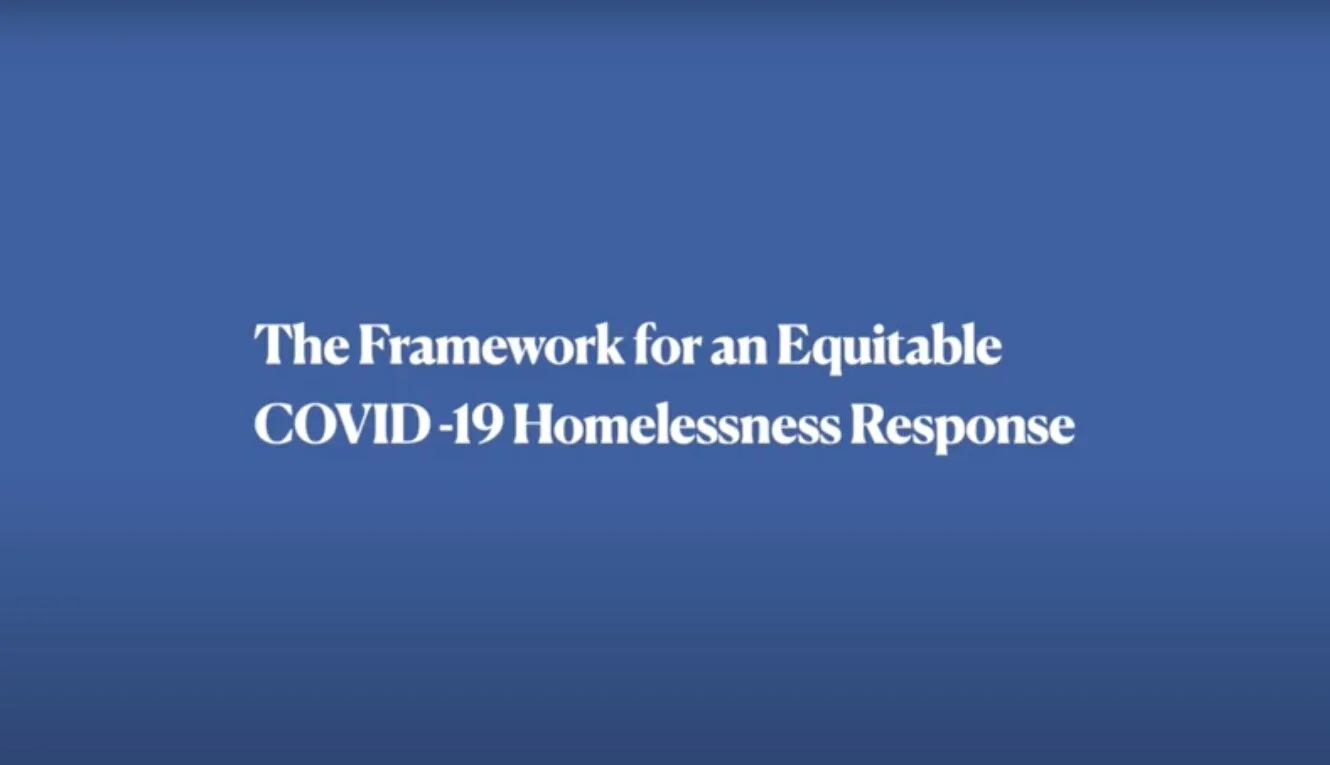Unprecedented Times Call for Unprecedented Partnerships – Introducing the Framework for an Equitable COVID-19 Homelessness Response
Ann Oliva, Visiting Senior Fellow at the Center on Budget and Policy Priorities, explains the Framework for an Equitable COVID-19 Homelessness Response. Video produced by the National Alliance to End Homelessness.
Dear Community,
Right now we do not have time or latitude to be anything less than visionary as we work against a pandemic exacerbated by racism, as we work to address unprecedented homelessness and economic instability exacerbated by inequality. At NIS, we know that in order to address these crises effectively, we must dismantle structural racism and build toward racial equity. We cannot continue business as usual; we must accelerate change. And we must work together to accomplish these goals.
It is in this spirit that NIS has teamed up with other leading national organizations in the fight to end homelessness, forming a partnership to offer support to states and communities across the country in centering racial equity and responding to the COVID-19 pandemic.
Partners in this effort include:
Nan Roman and the team at the National Alliance to End Homelessness
Ann Oliva and Peggy Bailey from the Center on Budget and Policy Priorities
Matthew Doherty and Barbara Poppe, both former Executive Directors of the U.S. Interagency Council on Homelessness currently working in communities across the country
Barbara DiPietro and the team from the National Health Care for the Homeless Council,
Diane Yentel and the team from the National Low Income Housing Coalition
Mary Cunningham and Samantha Batko from the Urban Institute
This work—funded by the Melville Charitable Trust, Funders for Housing and Opportunity, and through in-kind work by the partners—is rooted in The Framework for an Equitable COVID-19 Homelessness Response.
As we move forward, NIS will continue to work with these partners to release further updates to the framework itself and specific tools for implementation of an equity-based plan to address both the public health and economic crises our field is facing. These tools include:
How and why every community should focus CARES Act funds on people already experiencing homelessness, marginalized communities and extremely low-income households
A guide on how to implement equity-based decision-making processes at the community and organizational levels to ensure that people with lived expertise are at the table and participate in decisions
Briefs and videos that identify strategies to serve populations who have been marginalized historically and by COVID-19
A geographic targeting tool that will help identify specific neighborhoods where households are heavily impacted by COVID-19 and by its economic effects so that funds can be targeted to families and organizations working in those communities
Identification and implementation tips for impactful strategies like landlord engagement, working with small landlords and diversion approaches
NIS is working with our partners to release additional updates to the framework, including materials that address the intersection between police and people experiencing homelessness. Please email framework@naeh.org to request a presentation for your community or group by one of our partners. Please stay tuned for updates to the framework and supporting materials, including videos and live presentations.
This partnership builds on the commitment NIS made with our founding to wrestle complex issues to the ground, to directly confront our nation’s legacy of racism and the deadly treatment of Black and Brown lives in our public systems, to envision a different future and to build toward it.
In the past few weeks, NIS has offered our insights on the necessity of Black futures, how to defund the police, and an equitable systems transformation framework for COVID-19. To accomplish these visions for the future, we must radically partner and collaborate and encourage you to find ways to do the same. As always, thank you for your support and partnership in this work.
With gratitude and in solidarity,
Marc Dones


